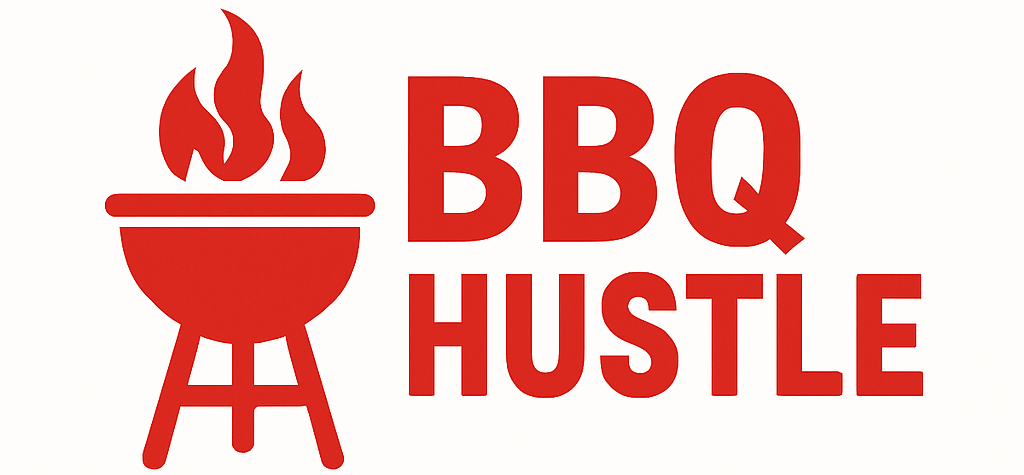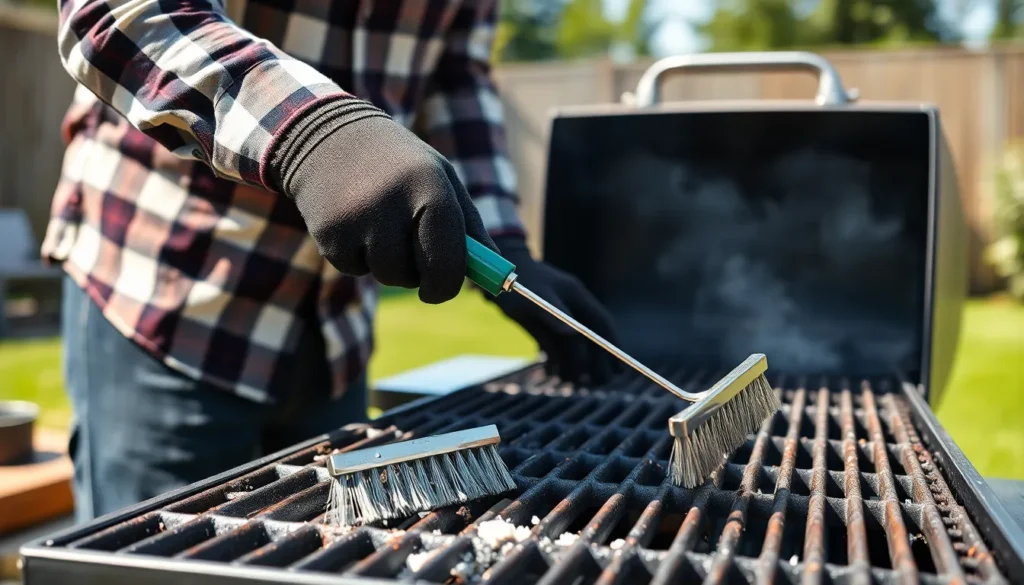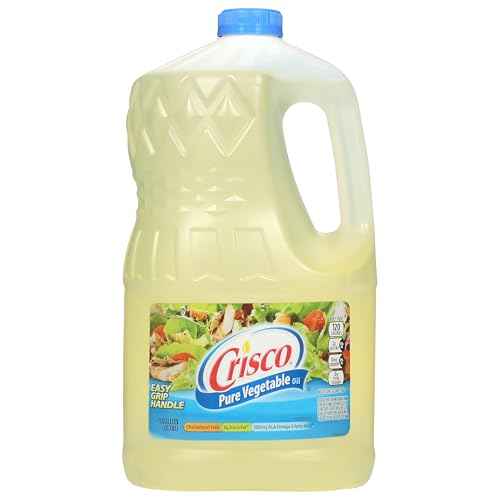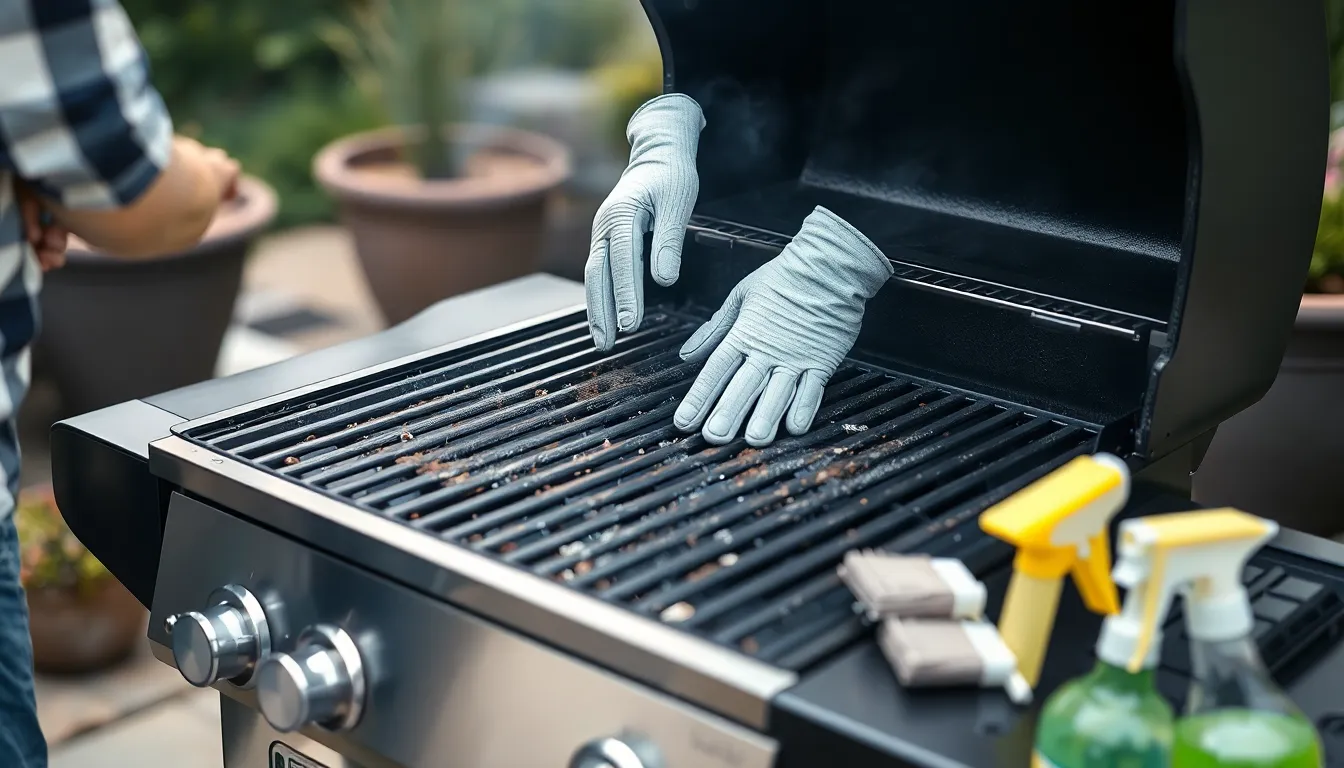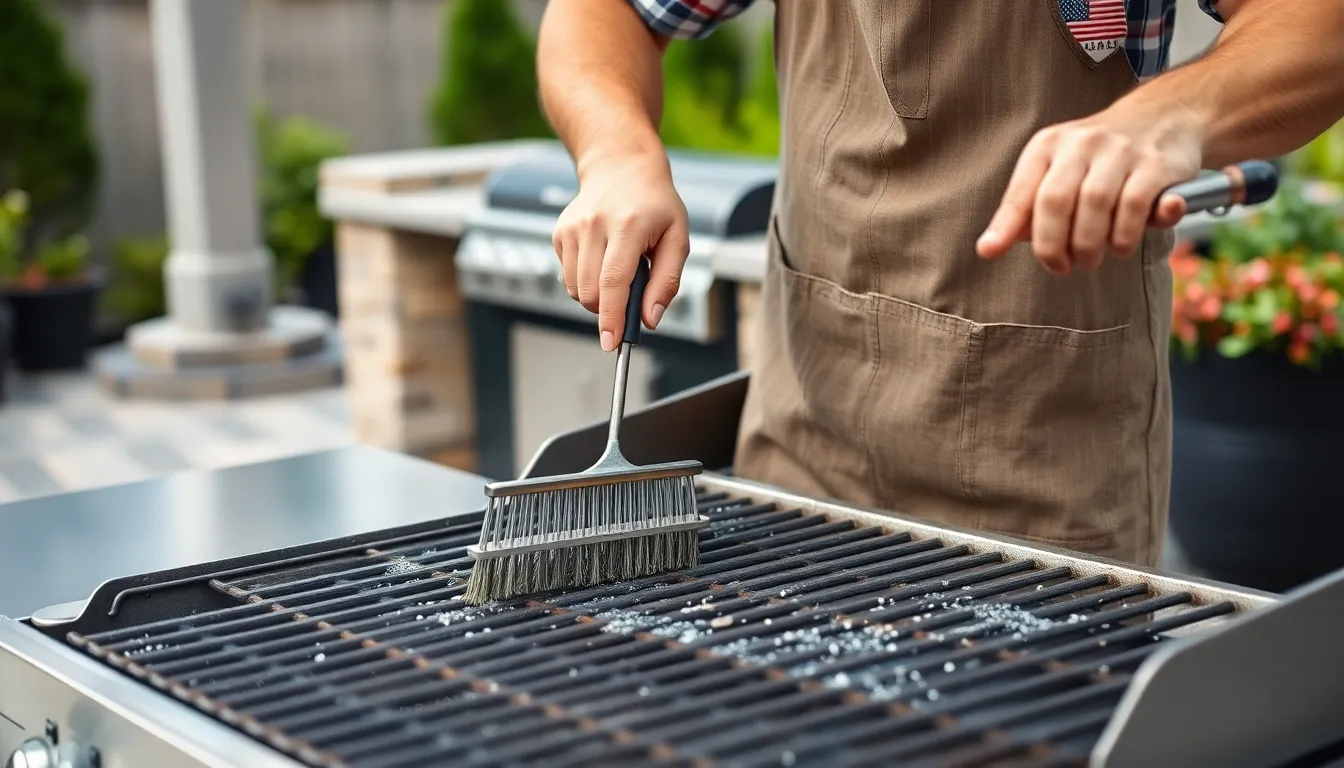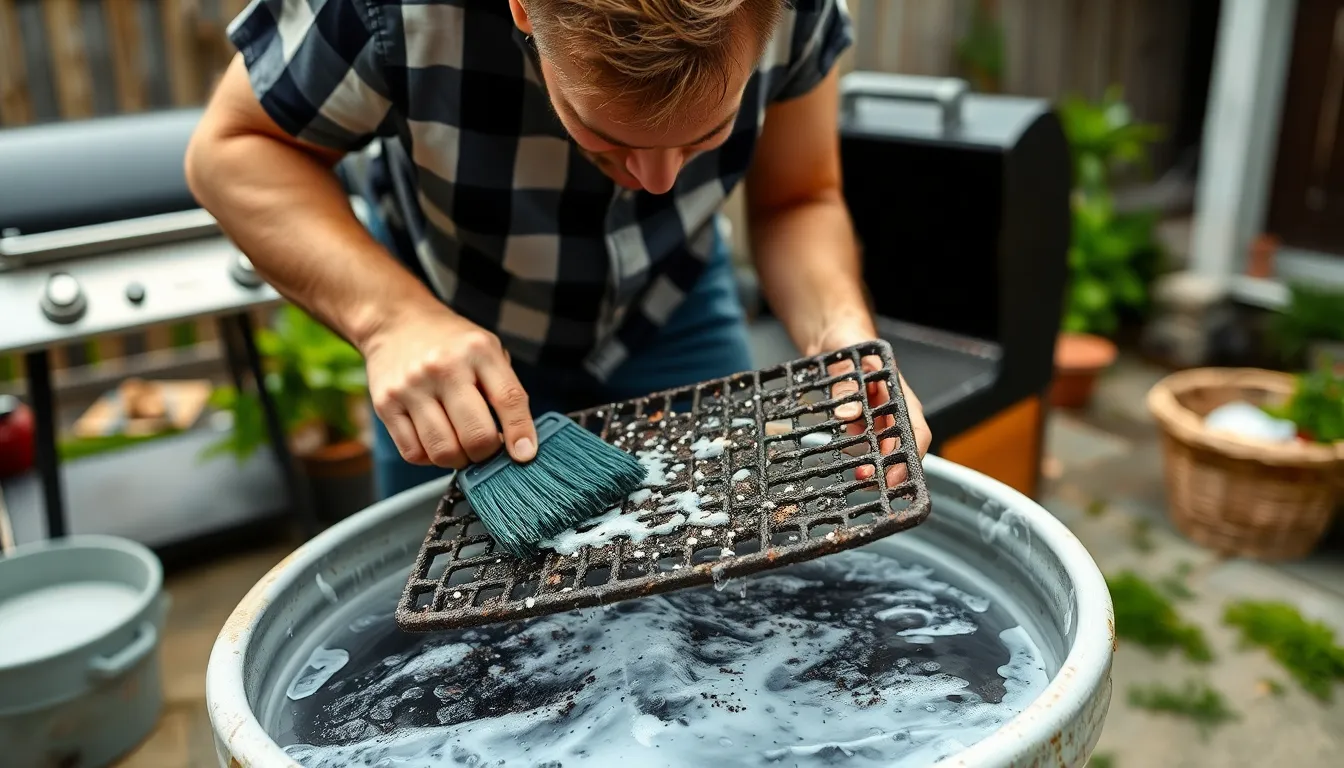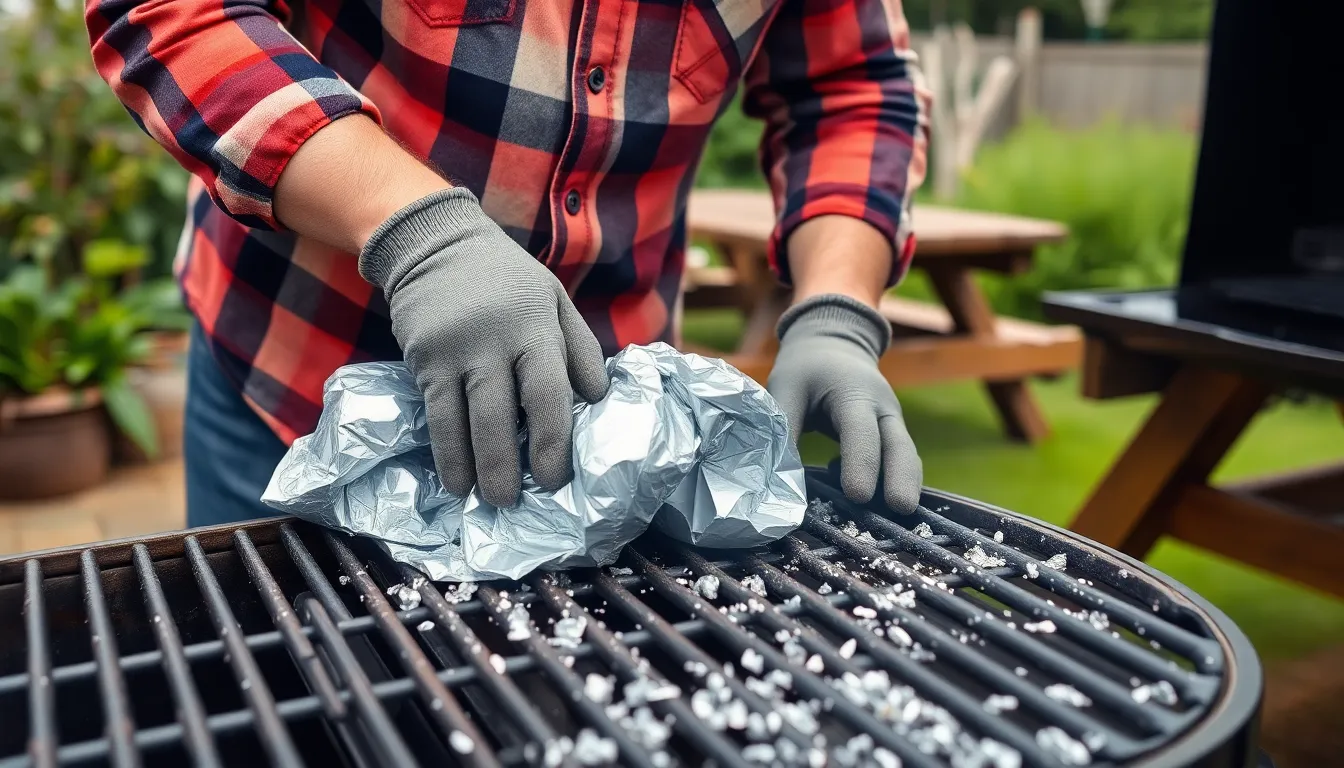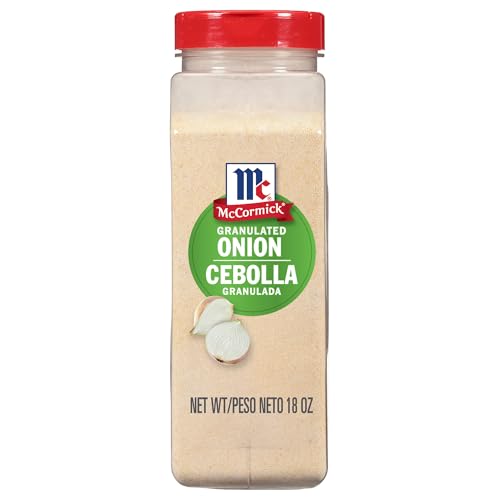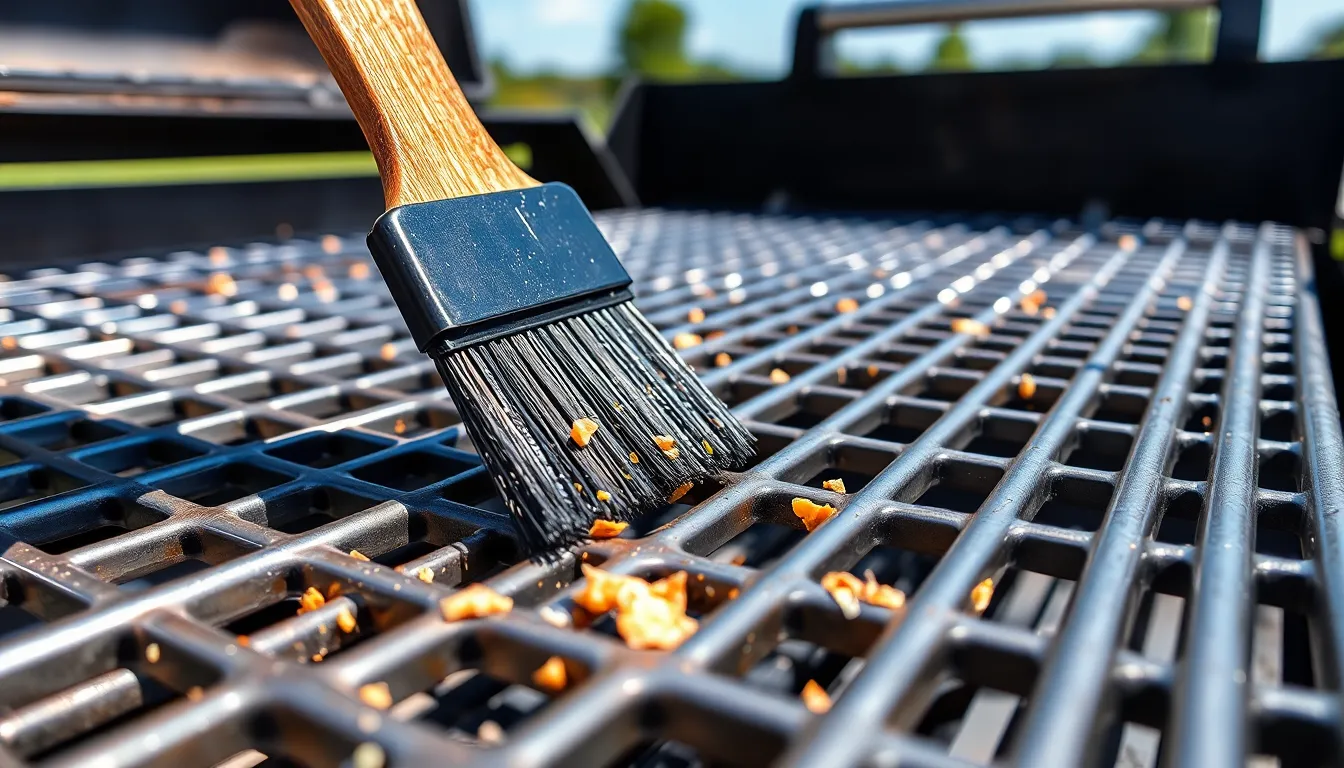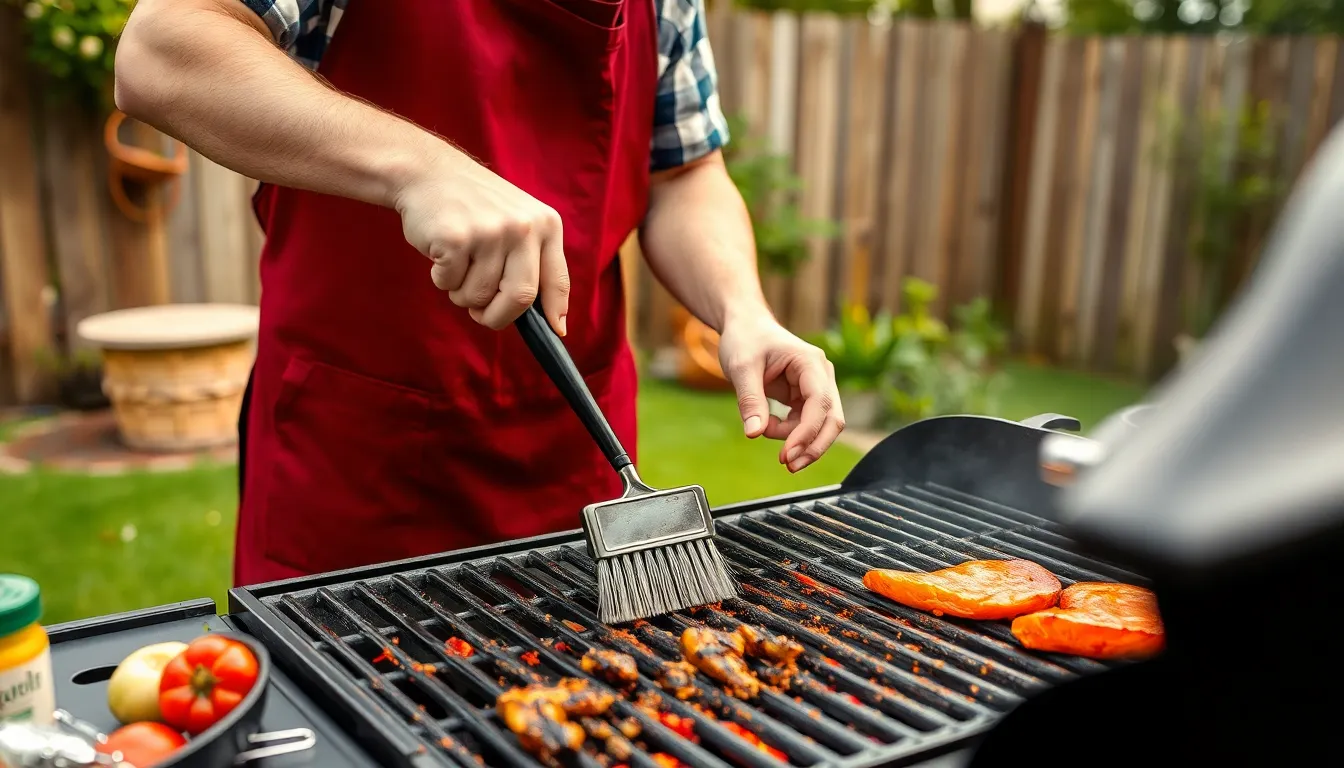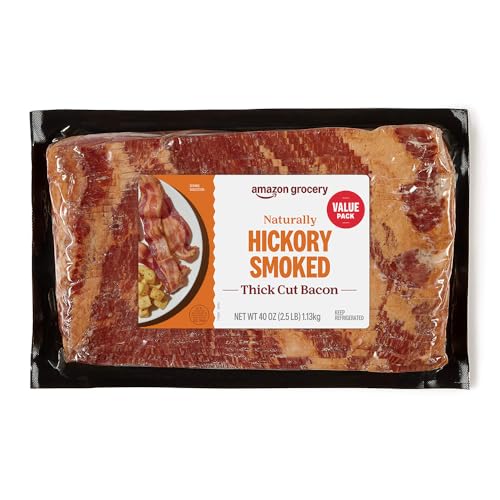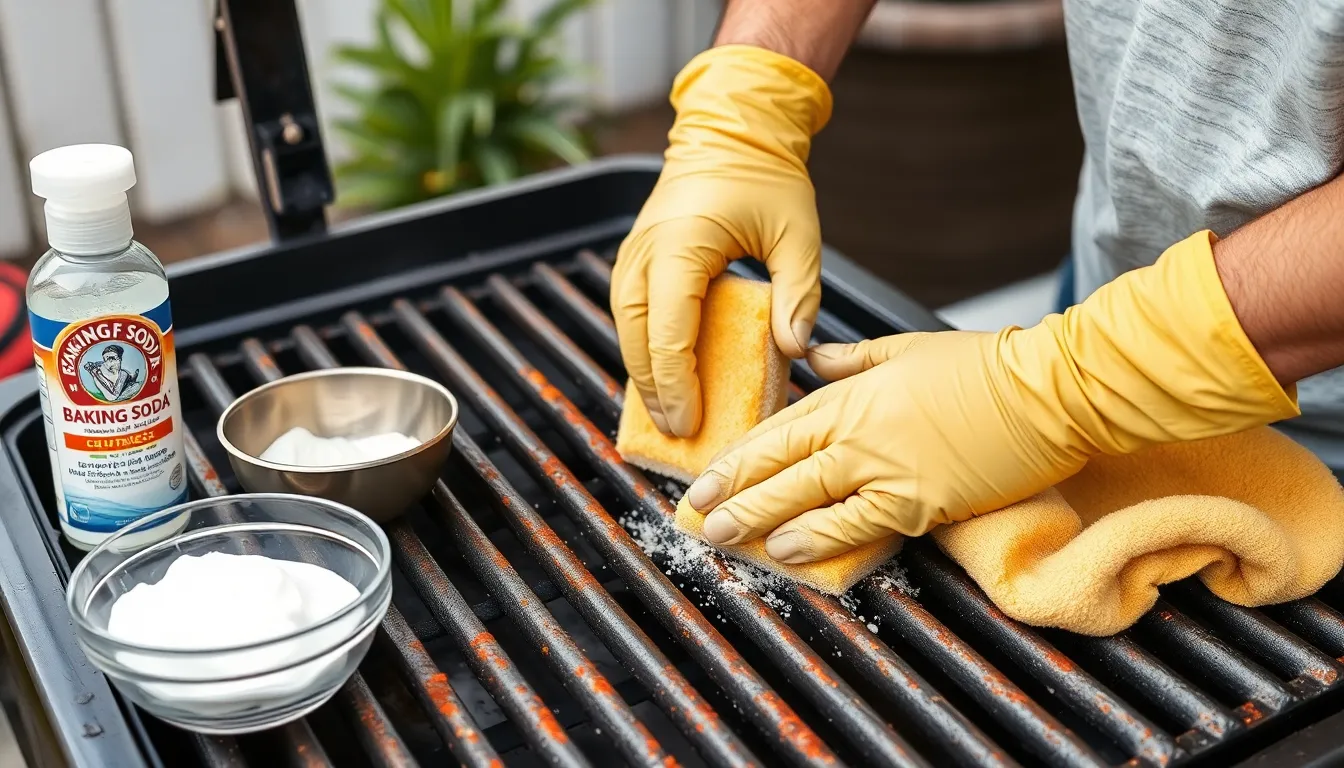Nothing ruins a perfect grilling session quite like dirty grill grates. We’ve all been there – firing up the BBQ only to discover last week’s burger remnants stubbornly clinging to the metal. Those grimy grates don’t just look unappetizing; they’re actually sabotaging your food’s flavor and your grill’s performance.
Clean grill grates are the secret weapon every pitmaster knows about. They prevent food from sticking, eliminate that burnt taste from old grease, and help create those beautiful sear marks we all crave. Plus, regular cleaning extends your grill’s lifespan and keeps your family safe from harmful bacteria buildup.
We’ll show you the most effective methods to transform even the grimiest grates into sparkling clean surfaces. From simple household ingredients to professional-grade techniques, these proven strategies will have your grill ready for the next cookout. Your taste buds (and your guests) will thank you.
Tools and Equipment Needed
We need exact tools and equipment to effectively clean our BBQ grill grates and achieve professional results. Having the right supplies on hand makes the cleaning process more efficient and ensures we can tackle even the most stubborn grease buildup.
Essential Cleaning Tools:
- Wire grill brush or brass bristle brush
- Grill scraper or putty knife
- Long-handled cleaning brush
- Microfiber cloths or paper towels
- Rubber gloves
- Bucket or large container for soaking
- Garden hose or spray bottle
Cleaning Answers and Materials:
- Dish soap (Dawn or similar degreasing formula)
- Baking soda
- White vinegar
- Aluminum foil
- Steel wool pads (for cast iron grates)
- Commercial grill cleaner (optional)
- Vegetable oil or cooking spray
Safety Equipment:
- Heat-resistant gloves
- Safety glasses
- Apron or old clothing
- Well-ventilated workspace
Specialized Tools by Grate Type:
| Grate Material | Recommended Tools | Avoid Using |
|---|---|---|
| Stainless Steel | Wire brush, steel wool, commercial cleaners | Chlorine bleach, abrasive powders |
| Cast Iron | Brass brush, coarse salt, vegetable oil | Soap (for seasoned grates), wire brushes |
| Porcelain-Coated | Soft brush, plastic scraper, mild detergent | Wire brushes, steel wool, harsh chemicals |
| Chrome-Plated | Soft cloth, gentle cleaners, warm soapy water | Abrasive materials, acidic cleaners |
We recommend gathering all these supplies before starting the cleaning process. This preparation saves time and ensures we have everything needed to restore our grill grates to their optimal condition. Quality tools make the difference between a quick cleanup and a thorough deep clean that extends our grill’s lifespan.
Prep Your Grill for Cleaning
Now that you have all your cleaning supplies ready, we need to properly prepare the grill for the cleaning process. Taking these essential preparation steps ensures both your safety and the effectiveness of the cleaning methods we’ll use.
Safety First – Let the Grill Cool Down
We must prioritize safety by allowing the grill to cool down completely before starting any cleaning process. Hot grill grates can cause severe burns and make handling dangerous, so patience is crucial here. Most grills need at least 30 to 45 minutes to reach a safe temperature after cooking, though larger grills may require up to an hour. We recommend touching the exterior of the grill first to gauge the temperature before attempting to handle any internal components. Never rush this cooling period, as injuries from hot metal can be serious and completely preventable.
Remove the Grates
Once the grill has cooled completely, we can safely remove the grill grates for thorough cleaning. Most grill grates simply lift out, but some models may have clips or brackets that need to be released first. We should handle the grates carefully to avoid dropping them, as this can cause damage to both the grates and surrounding surfaces. Place the removed grates on a flat, stable surface where you have room to work comfortably. Large grates work best when cleaned in a garage, patio area, or even a large sink if they fit.
Assess the Level of Buildup
Before choosing our cleaning method, we need to evaluate how much food residue and grime have accumulated on the grates. Light buildup with minimal grease requires less aggressive cleaning techniques, while heavy accumulation of burnt-on food and thick grease layers demand stronger approaches. We should look for areas with stubborn, caked-on debris that might need extra attention during the cleaning process. This assessment helps us determine whether we need basic scrubbing, the baking soda paste method, or more intensive degreasing treatments. Different levels of buildup respond better to exact cleaning approaches, making this evaluation step critical for achieving the best results.
After removing the grates and assessing their condition we can begin with our standard cleaning routine. This basic method works effectively for regular maintenance and light to moderate buildup.
Basic Cleaning Method
We start by using a grill brush to remove large debris and food particles from the grates after each use. This initial scrubbing helps prevent grime buildup and makes future cleaning sessions much easier. Choose a brush with stiff bristles that match your grate material – wire brushes work well for stainless steel and cast iron while softer brushes are better for porcelain coated surfaces.
Hold the brush at a 45 degree angle and scrub in long consistent strokes along the length of each grate bar. Apply firm pressure to dislodge stuck on food particles and grease deposits. Pay special attention to areas where food typically sits as these spots tend to accumulate the most residue.
Work systematically across the entire grate surface ensuring you cover both sides thoroughly. The brush bristles should catch and pull away most of the loose debris during this process.
Rinse and Dry
We rinse the grates with water to remove any remaining particles and debris loosened during brushing. Use a garden hose or large sink to thoroughly flush away all the scrubbed off material. The water pressure helps wash away stubborn bits that the brush may have loosened but not completely removed.
After rinsing we dry the grates completely to prevent rust formation. Use clean towels or paper towels to wipe down all surfaces removing every trace of moisture. For cast iron grates this step is particularly crucial as these materials are prone to rust when left wet.
Allow the grates to air dry for several minutes before storing or reinstalling them on your grill. Proper drying extends the life of your grates and maintains their cooking performance for your next grilling session.
Deep Cleaning Methods
When basic cleaning methods fall short we need to employ more intensive techniques to tackle stubborn grease and burnt-on residue. These deep cleaning approaches effectively break down heavy buildup that regular brushing cannot remove.
Soaking Method for Stubborn Grease
We recommend soaking as our go-to method for grates with heavy grease accumulation. Place your grill grates in a large tub or basin and cover them completely with water. For tougher grime we add dish soap or a commercial degreaser to the water.
Allow the grates to soak overnight or for several hours depending on the buildup severity. The extended soaking time softens hardened grease and makes removal significantly easier. After soaking we use a stiff-bristled brush to scrub away the loosened grime. This method works particularly well for cast iron and stainless steel grates that can withstand prolonged water exposure.
Baking Soda Paste Technique
We create a powerful cleaning paste by mixing baking soda with water until it reaches a thick consistency. Apply this paste generously to the grate surfaces focusing on areas with the heaviest buildup. The alkaline properties of baking soda naturally break down grease and food particles.
Let the paste sit for 15 to 30 minutes to maximize its effectiveness. We then use a scrubber or brush to work the paste into the grime before rinsing thoroughly with water. This method provides excellent results for moderate to heavy buildup without using harsh chemicals.
Vinegar and Dish Soap Solution
We combine equal parts water and white vinegar with a small amount of dish soap to create an effective cleaning solution. Apply this mixture to the grates and allow it to sit for several minutes while the acids work to dissolve grease and food residue.
Use a brush to scrub the treated areas then rinse completely with clean water. We often enhance this method by applying the vinegar solution after using our baking soda paste technique. The acid and base reaction creates additional cleaning power that tackles even the most stubborn buildup effectively.
Alternative Cleaning Techniques
Beyond traditional scrubbing methods, several innovative techniques can tackle tough grill grate buildup using household items and specialized products. These methods offer effective answers when standard cleaning approaches fall short.
Aluminum Foil Ball Method
We recommend this abrasive technique for stubborn residue that resists conventional cleaning methods. First, create a thick paste using 1½ cups baking soda mixed with ½ cup water. Spread this paste evenly across the grill grates and allow it to sit for 15-20 minutes to break down accumulated grease.
Next, crumple aluminum foil into a tight ball that fits comfortably in your hand. Use this foil ball as a scrubber, applying firm pressure while working across the grate surface in circular motions. The foil’s abrasive texture effectively removes burnt-on food particles and stubborn grease deposits.
After scrubbing thoroughly, rinse the grates with clean water to remove all paste residue and loosened debris. Dry completely before returning the grates to your grill.
Important Safety Note: Never use this method on porcelain or enamel-coated grates, as the metal foil can scratch and damage these delicate surfaces permanently.
Onion Cleaning Trick
This natural cleaning method works exceptionally well on hot grill grates immediately after cooking. Cut a large onion in half and secure it firmly on a long-handled fork or grilling utensil. While your grates remain warm from cooking, scrub the surface using the cut onion half.
The onion’s natural juices contain enzymes that break down grease and food residue effectively. Also, this technique imparts a subtle flavor enhancement to your grill grates for future cooking sessions. The moisture from the onion helps steam away stubborn particles while the natural acids work to dissolve buildup.
This method proves particularly effective for maintenance cleaning after each grilling session, preventing heavy accumulation from forming over time.
Commercial Grill Cleaners
Professional-grade cleaners like Zep grill degreaser offer powerful answers for heavily soiled grates. Spray the commercial degreaser evenly across the grate surface, ensuring complete coverage of all areas with buildup.
Allow the product to sit according to manufacturer specifications, typically ranging from 5 to 40 minutes depending on the formula strength. This dwell time enables the degreaser to break down complex grease molecules and burnt-on residue chemically.
After the recommended waiting period, wipe the grates clean with a damp cloth or scrub brush to remove loosened grime. Rinse thoroughly with clean water to eliminate all chemical residue before using your grill for cooking.
| Commercial Cleaner Application Times |
|---|
| Light buildup: 5-10 minutes |
| Moderate buildup: 15-25 minutes |
| Heavy buildup: 30-40 minutes |
Safety Reminder: Always follow label instructions precisely and ensure complete rinsing to avoid chemical contamination of food during future grilling sessions.
Cleaning Different Types of Grill Grates
Different grate materials require exact cleaning approaches to maintain their performance and longevity. We’ll explore the best methods for each type to ensure your grates stay in optimal condition.
Stainless Steel Grates
Stainless steel grates offer excellent durability and rust resistance but still demand regular maintenance for hygiene and longevity. We recommend brushing off food debris after every use to prevent buildup from becoming stubborn residue.
For routine cleaning between cooking sessions, use a grill brush with stainless steel bristles to remove fresh debris. Apply a mixture of baking soda and dish soap for moderate buildup, creating a paste that breaks down grease effectively. Commercial grill cleaners work exceptionally well on stainless steel surfaces when following manufacturer instructions.
Deep cleaning becomes necessary every 4-6 months for weekly grillers or at least once annually for occasional users. We suggest using a grinding tool with a stainless steel cup attachment to reduce manual scrubbing effort during intensive cleaning sessions. Vinegar answers also work effectively on stainless steel, helping dissolve mineral deposits and stubborn grease.
| Cleaning Frequency | Usage Pattern | Method |
|---|---|---|
| After each use | All users | Brush off debris |
| Monthly | Weekly grillers | Baking soda paste |
| Every 4-6 months | Weekly users | Deep clean with commercial cleaners |
| Annually | Occasional users | Comprehensive deep clean |
Cast Iron Grates
Cast iron grates require special attention to preserve their seasoning and prevent rust formation. We always scrub these grates with a grill brush immediately after use while they’re still warm, making debris removal easier.
For deeper cleaning needs, soak the grates in warm soapy water but avoid prolonged soaking that can strip away protective seasoning. Scrub gently with a non-abrasive brush, rinse thoroughly, and dry completely to prevent moisture-related rust formation.
After cleaning and drying, apply a thin coat of cooking oil to maintain the non-stick properties and rust protection. We heat the oiled grates briefly to help the oil penetrate the iron surface. Store cast iron grates in a dry location to prevent humidity damage between uses.
Never use harsh chemicals or wire brushes that can damage the seasoned surface. Baking soda paste works well for stubborn spots without compromising the seasoning layer.
Porcelain-Coated Grates
Porcelain-coated grates demand gentle cleaning techniques to avoid chipping or damaging the protective coating. We use non-corrosive cleaners exclusively, avoiding metal scrapers and wire brushes that can create permanent damage.
Create a baking soda paste using 1½ cups baking soda mixed with ½ cup water for effective yet gentle cleaning. Apply this paste to the grates, allow it to sit for 15-20 minutes, then scrub carefully using a brass bristle brush or nylon sponge.
For routine maintenance, mild dish soap mixed with warm water provides adequate cleaning power without risking coating damage. We rinse thoroughly after cleaning and dry completely before storage or use.
Commercial cleaners designed specifically for porcelain surfaces offer another safe option when household methods prove insufficient. Always test any new cleaner on a small, inconspicuous area first to ensure compatibility with your exact grate coating.
Maintenance Tips
Consistent maintenance habits prevent heavy buildup and extend the life of your grill grates significantly. We’ve found that following these essential practices keeps grates in optimal condition between grilling sessions.
Clean After Each Use
Grill brush maintenance becomes effortless when we clean grates immediately after each grilling session. Use a grill brush to remove food particles and debris while the grates are still warm but safe to handle.
Scrape off excess residue using a grill scraper to eliminate large chunks of food before they harden. We recommend focusing on areas where meat or vegetables were cooked to prevent stubborn buildup.
Remove loosened debris by giving the grates a final brush to clear away any remaining particles. This simple step after each use makes deep cleaning sessions far less frequent and intensive.
Season Cast Iron Grates
Oil application protects cast iron grates from rust while maintaining their natural non-stick properties. Apply vegetable oil or bacon grease to clean cast iron grates after every cleaning session.
Avoid rust formation by ensuring grates are completely dry before applying oil. We always pat grates dry with paper towels and allow air drying before the seasoning process.
Maintain seasoning layers by applying thin coats of oil and heating the grates briefly to bond the oil to the surface. Regular seasoning creates a protective barrier that improves with each use.
Proper Storage
Oil coating preparation involves applying a thick layer of cooking oil before storing grates for extended periods. We use this method when putting grills away for winter or during long breaks from grilling.
Cover the grill consistently when not in use to prevent moisture buildup that leads to rust and corrosion. A quality grill cover protects both the grates and the entire grill from weather elements.
Store in dry conditions by ensuring the storage area has proper ventilation and low humidity levels. We recommend checking stored grates periodically and reapplying oil if needed to maintain protection.
Troubleshooting Common Issues
Even with consistent maintenance routines some grill grate problems require targeted answers. We’ll address the most common issues that can affect your grilling performance and appearance.
Removing Rust Spots
Rust spots on grill grates demand immediate attention to prevent further deterioration. We recommend creating a thick paste using baking soda and water then applying it directly to the affected areas. Allow the paste to sit for 15-20 minutes to penetrate the rust before scrubbing with a damp sponge or soft brush.
After removing the rust we must thoroughly dry the grates to eliminate any remaining moisture. Apply a thin layer of cooking oil to the cleaned surface to create a protective barrier against future rust formation. This oiling step becomes particularly crucial for cast iron grates which are more susceptible to corrosion.
Dealing with Burnt-On Food
Stubborn burnt-on food particles require strategic removal techniques to avoid damaging the grate surface. We suggest applying a commercial degreaser like Zep directly onto the problem areas then allowing it to sit for approximately 40 minutes to soften the hardened residue.
Alternatively we can use the baking soda paste method for burnt-on buildup by mixing equal parts baking soda and water. Apply this mixture generously over the affected areas and let it work for 15-20 minutes before scrubbing with an appropriate brush for your grate material. The alkaline properties of baking soda help break down protein and grease bonds that create stubborn deposits.
Restoring Shine to Stainless Steel
Stainless steel grates lose their lustrous appearance over time but we can restore their original shine with proper techniques. Create a cleaning solution by mixing baking soda with water to form a smooth paste then apply it evenly across the grate surface.
Use a soft sponge to scrub the paste into the steel following the grain direction to avoid scratching. Rinse thoroughly with clean water and dry completely with a soft cloth to prevent water spots. We must avoid using abrasive cleaners or steel wool on stainless steel surfaces as these materials can cause permanent scratching and dullness that cannot be reversed.
Conclusion
Maintaining clean grill grates isn’t just about aesthetics—it’s essential for better-tasting food and a longer-lasting grill. With the right tools and techniques we’ve covered you’ll be able to tackle everything from light buildup to stubborn burnt-on residue.
Remember that regular maintenance is your best friend. A quick brush after each grilling session saves you hours of deep cleaning later. Whether you’re working with stainless steel cast iron or porcelain-coated grates the key is matching your cleaning method to your grate material.
Now you’re equipped with multiple cleaning strategies from basic scrubbing to innovative tricks like the onion method. Keep your grates in top condition and they’ll reward you with perfectly seared food every time you fire up the grill.
Frequently Asked Questions
Why is it important to keep grill grates clean?
Clean grill grates prevent food from sticking, eliminate burnt tastes, and enhance sear marks on your food. They also reduce harmful bacteria, improve grill performance, and extend your grill’s lifespan. Dirty grates can negatively impact food flavor and make grilling less enjoyable.
What tools do I need to clean my grill grates effectively?
Essential tools include wire brushes, grill scrapers, dish soap, baking soda, and vinegar. You’ll also need safety equipment and specialized tools based on your grate material (stainless steel, cast iron, porcelain-coated, or chrome-plated). Gathering all supplies beforehand ensures a thorough cleaning process.
How should I prepare my grill before cleaning the grates?
Always allow your grill to cool down completely before cleaning for safety. Once cooled, carefully remove the grates for thorough cleaning. Assess the level of buildup to determine the appropriate cleaning method – light buildup needs less aggressive techniques than heavy accumulation.
What’s the basic method for regular grill grate maintenance?
Use a grill brush to remove large debris and food particles, ensuring you use the right brush for your grate material. Scrub the grates effectively, rinse to remove loosened debris, and dry thoroughly to prevent rust formation. This method works well for light to moderate buildup.
How do I deep clean heavily soiled grill grates?
For heavy grease, soak grates in water with dish soap or commercial degreaser. Try a baking soda paste technique by applying a thick paste of baking soda and water. You can also use a vinegar and dish soap solution to dissolve stubborn residue using vinegar’s acidic properties.
Are there any alternative cleaning methods I can try?
Yes! The aluminum foil ball method uses baking soda paste with crumpled foil to scrub residue. The onion cleaning trick involves using a halved onion on warm grates to break down grease while adding flavor. Commercial grill cleaners are also effective for tough buildup.
Do different grill grate materials require different cleaning approaches?
Absolutely. Stainless steel grates need regular brushing and baking soda mixtures. Cast iron requires immediate scrubbing and gentle cleaning to preserve seasoning. Porcelain-coated grates need non-corrosive cleaners to avoid damage. Each material has specific cleaning frequencies and methods for optimal care.
How often should I clean my grill grates?
Clean grates immediately after each use with a grill brush while they’re still warm. Deep cleaning should occur every 4-6 months for stainless steel, more frequently for cast iron. Regular maintenance prevents heavy buildup and extends grate life significantly.
How can I prevent rust on my grill grates?
Season cast iron grates with oil after cleaning and apply a thick layer of cooking oil before long-term storage. Use a quality grill cover to prevent moisture buildup. Always dry grates thoroughly after cleaning, as moisture is the primary cause of rust formation.
What should I do if my grill grates have rust or burnt-on food?
Create a baking soda paste to treat rust spots effectively. For stubborn burnt-on food, apply commercial degreaser or baking soda paste. For stainless steel grates, use non-abrasive materials to restore shine without causing damage to the surface.
